Archive
01 October 2021
Can quantum and gravity get along?

A proposal for testing general relativity using superconducting mechanical quantum devices.
01 October 2021
Safety and modernisation go hand in hand at Reactor Institute Delft (RID)
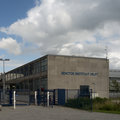
In September, Reactor Institute Delft (RID) was visited by an INSARR mission (Integrated Safety Assessment for Research Reactors) from the International Atomic Energy Agency (IAEA). In its report, the team of experts from the IAEA concluded that during a significant modernisation operation of the research reactor, safety was prioritised. The team also found areas requiring further enhancements, including the organisational structure and safety procedures and documentation.
30 September 2021
Nanobiology: ten years of merging disciplines
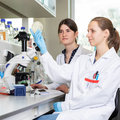
Almost ten years ago, Delft University of Technology and the Erasmus University Medical Centre launched the world’s first bachelor in Nanobiology, merging the scientific disciplines of biology, physics, and mathematics.
23 September 2021
A New Beam Multiplexer for NASA's GUSTO mission
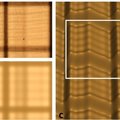
GUSTO, NASA's stratospheric balloon observatory, will bring the Dutch multi-pixel camera system of SRON and TU Delft to the edge of space. It will perform a large-scale observation of the spectral lines from ionized atoms between the stars of the Milky Way. As an extra hardware contribution, SRON-TU Delft delivers a Fourier phase grating. The technique behind it is now published in Optics Express.
03 September 2021
Spinoza Prize for Lieven Vandersypen

NWO has announced that Professor Lieven Vandersypen (TU Delft/QuTech) has been awarded the Spinoza Prize, the highest award in Dutch Science.
02 September 2021
Stronger is not always better

Rather than one key and one strong lock, biology often uses tens or hundreds of weaker links to bind parts together, such as cells membranes. This allows for selectivity and also reversibility: the binding can also be undone. Researcher Christine Linne and colleagues from Leiden University, TU Delft and Imperial College London first caught this phenomenon using spheres or colloids, and published September 1st in the journal PNAS.
30 August 2021
Catch me if you can: a revolutionary method to study single proteins
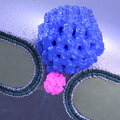
Researchers from the technical universities of Delft and Munich have invented a new type of molecular trap that can hold a single protein in place for hours to study its natural behavior – a million times longer than before.
26 August 2021
New CRISPR-Cas system cuts virus RNA
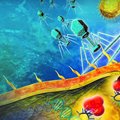
Researchers from the group of Stan Brouns (Delft University of Technology) have discovered a new CRISPR-Cas system that cuts RNA. The study will be published on August 26 in Science and is expected to offer many opportunities for the development of new applications in genetic research and biotechnology.
06 July 2021
Teachers of the Year 2021 of TNW announced
During an online presentation on 6 July, Dean Paulien Herder and Director of Education Chris Kleijn announced the Teachers of the Year of the Faculty of Applied Sciences. The winners are: Wim Bouwman (AP), Tom Burdyny (MST & CE), Caroline Wehrmann (SEC), Frank Hollmann (LST) and Margreet Docter (NB). Tom Burdyny was also named Teacher of the Year for the entire Faculty of Applied Sciences.
30 June 2021
A new spin on making minimal cells
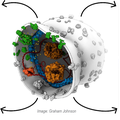
The ability of a cell to separate its own matter from its surroundings is a basic requirement for life. A team of researchers at AMOLF and Delft University of Technology have managed to create a synthetic container, or lipid vesicle, that is able to hold a range of different biological systems: from a cytoskeleton to entire E.coli bacteria. Their findings on this optimized cDICE method, which has the potential to reveal the inner workings of life, are published in ACS Synthetic Biology on DATE.